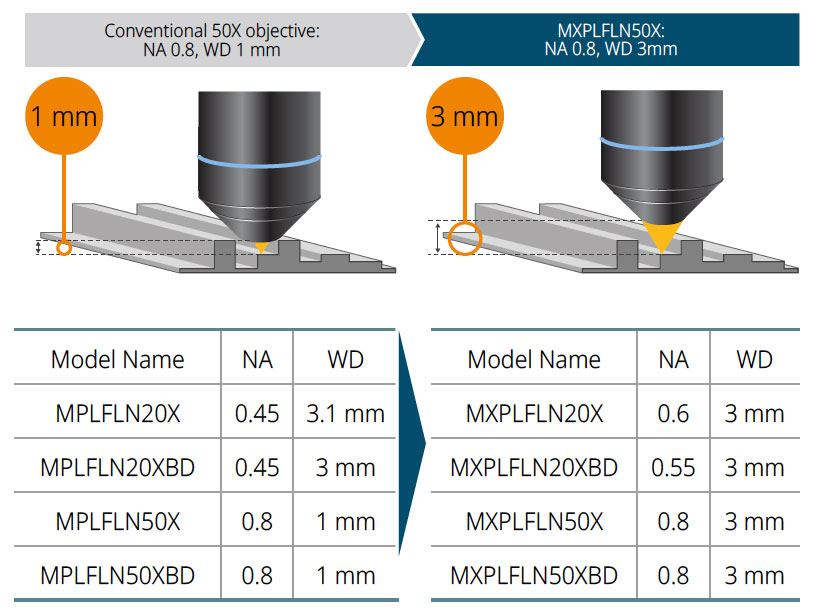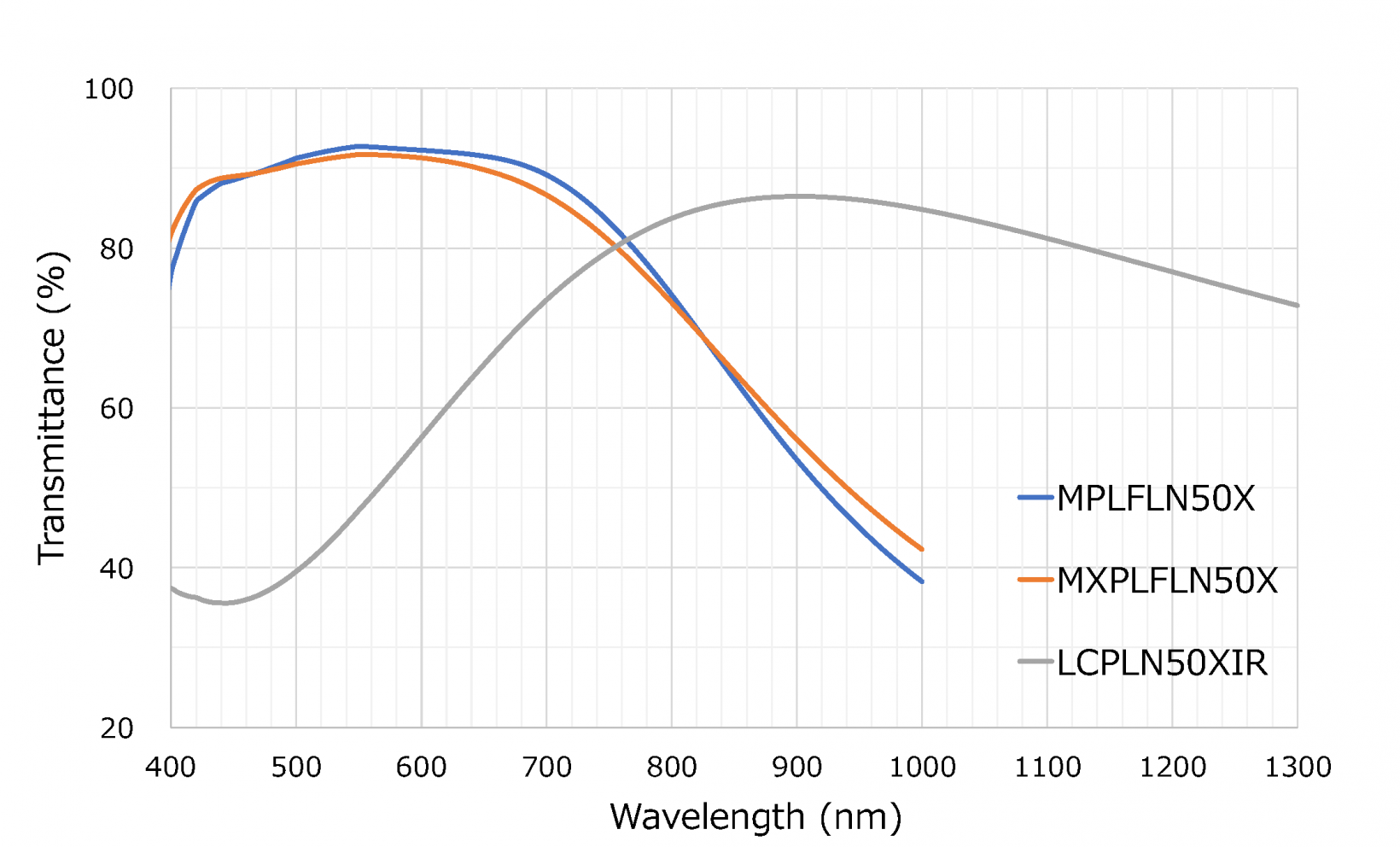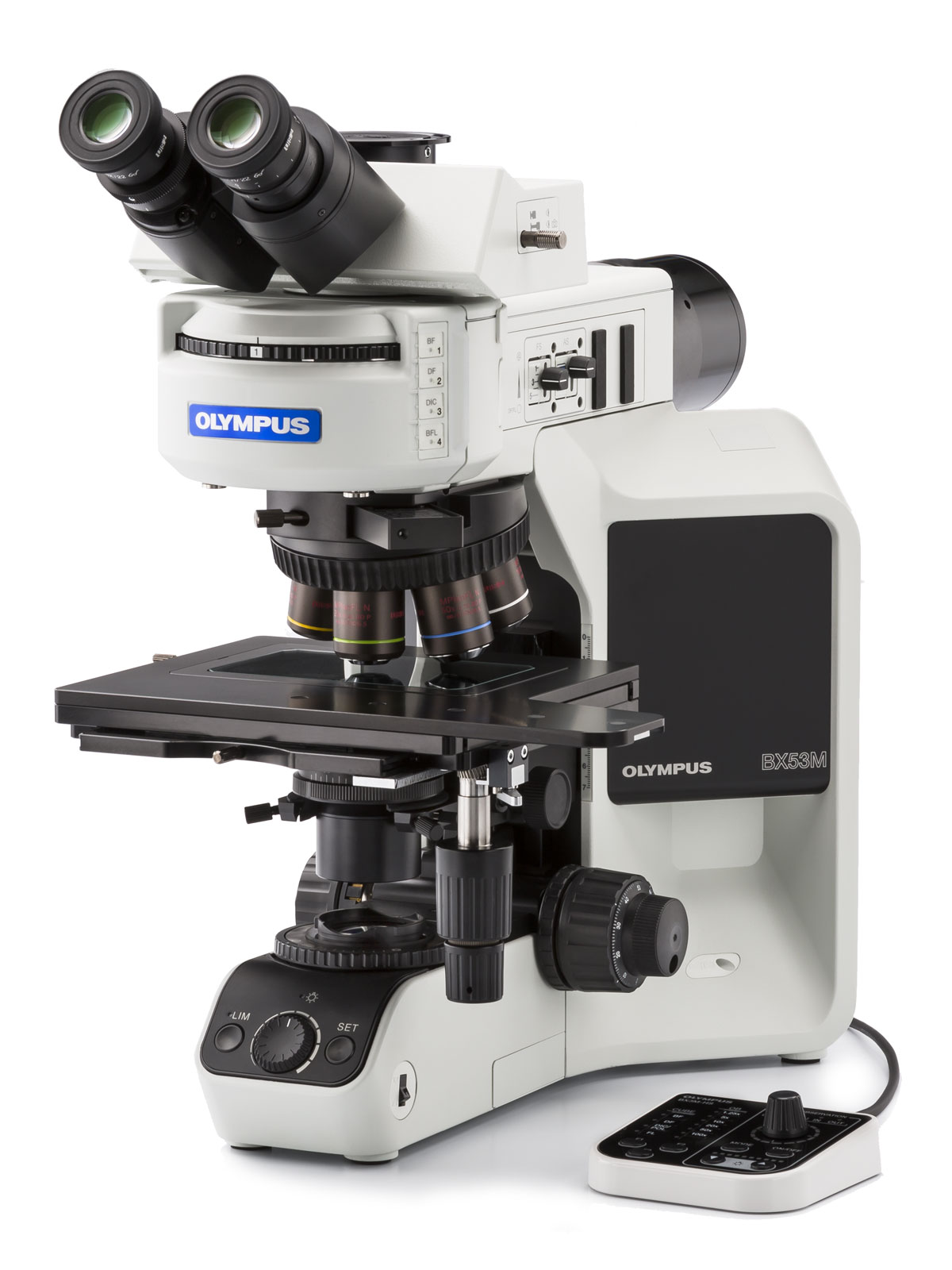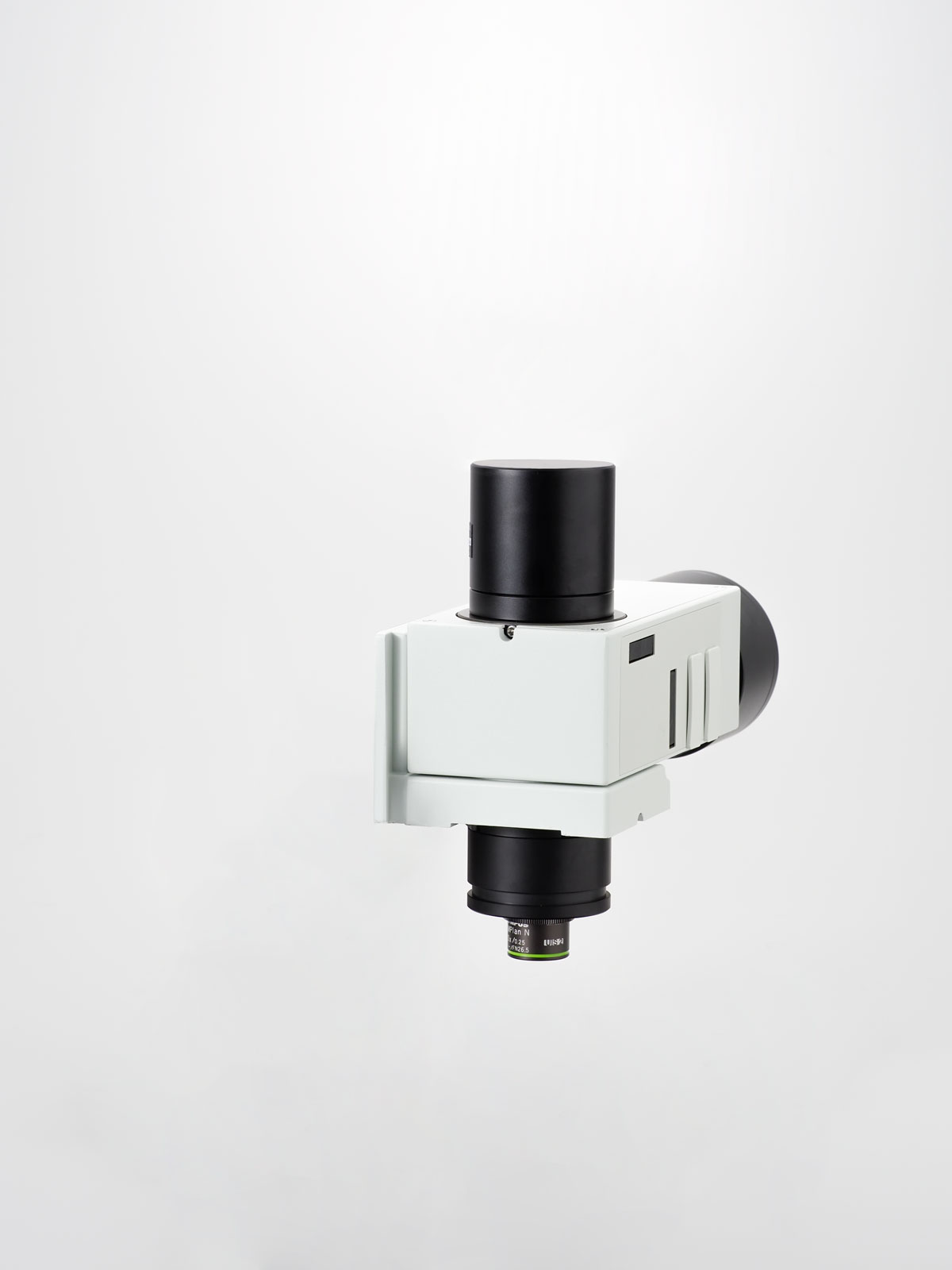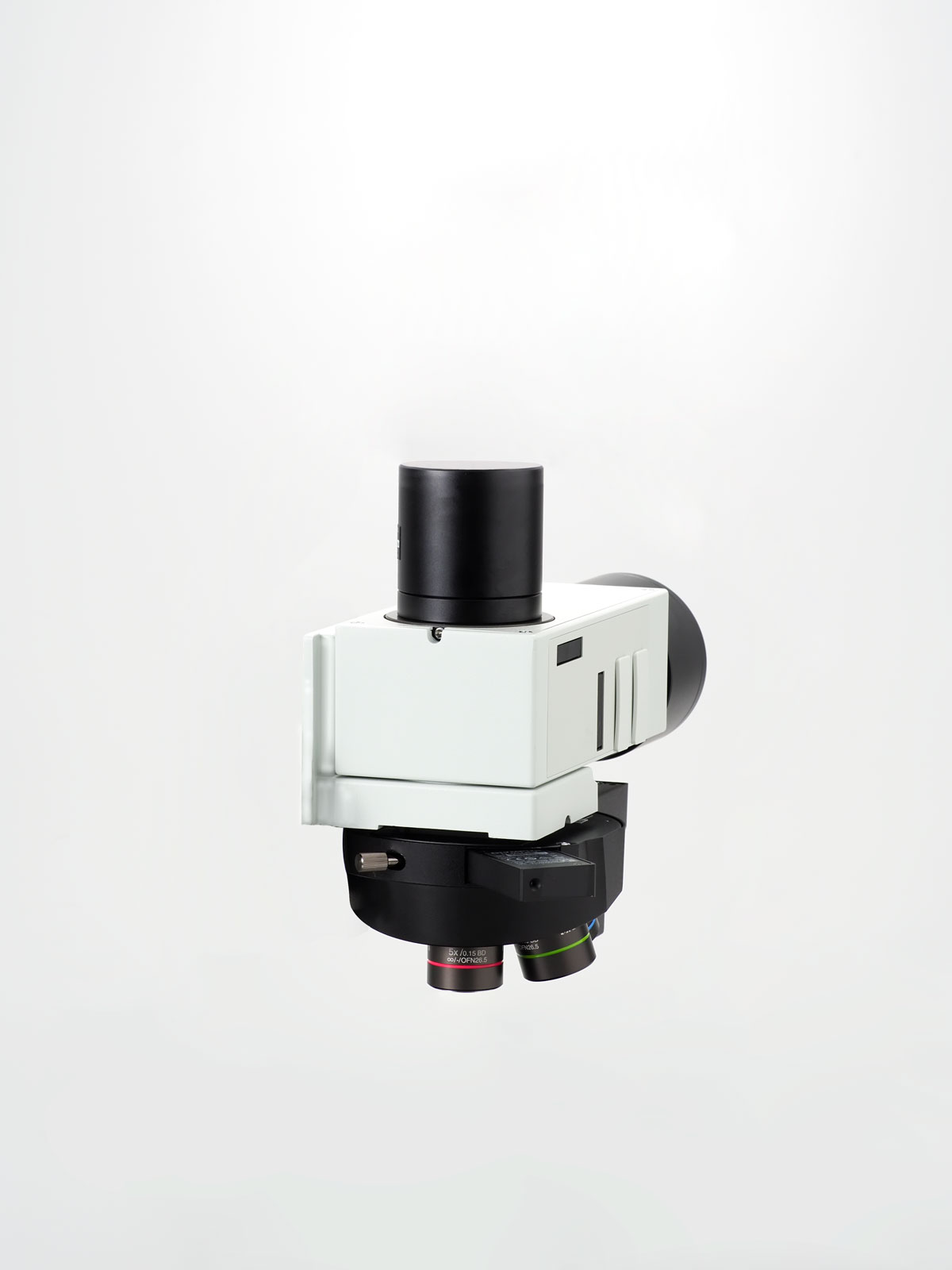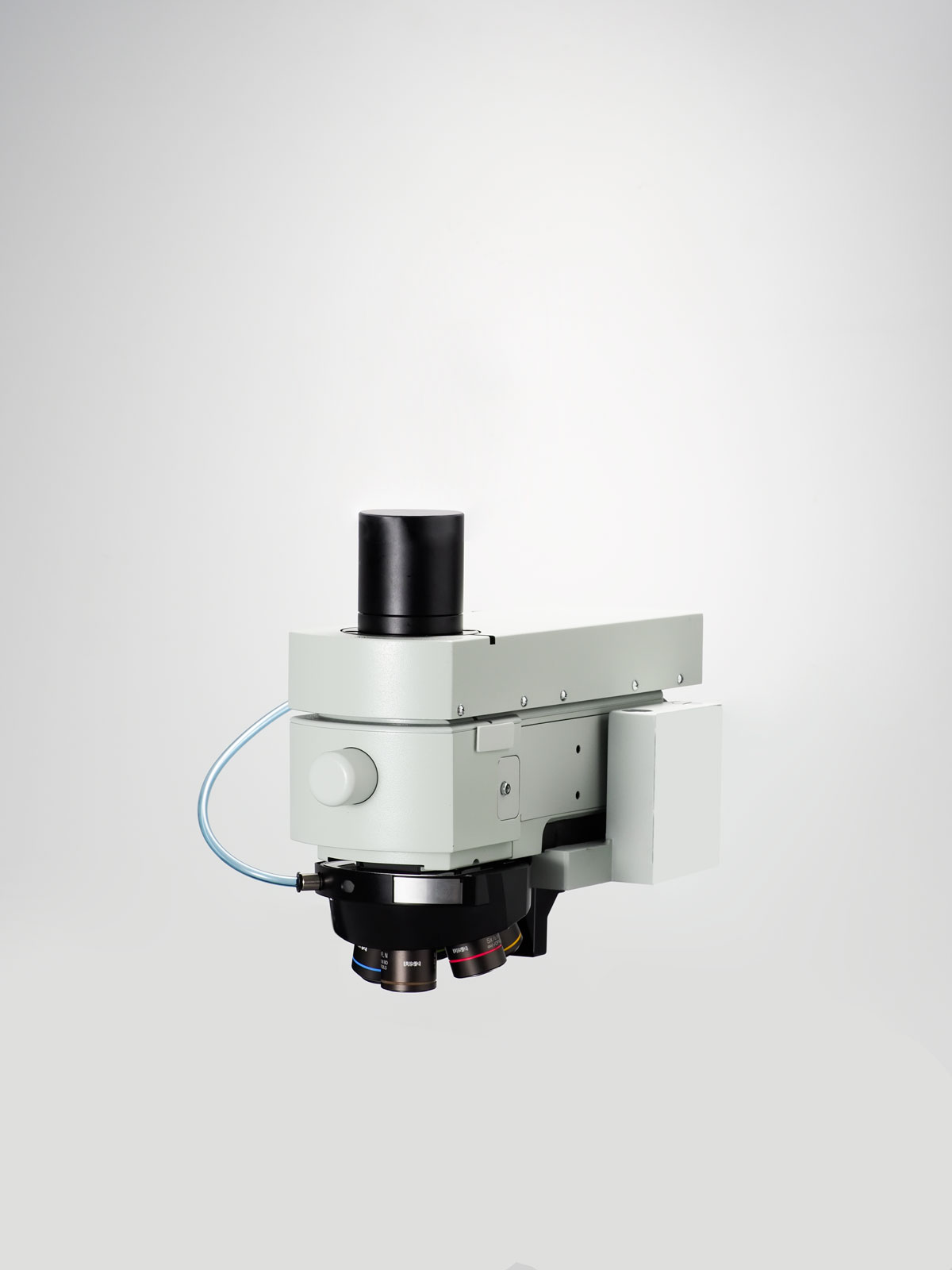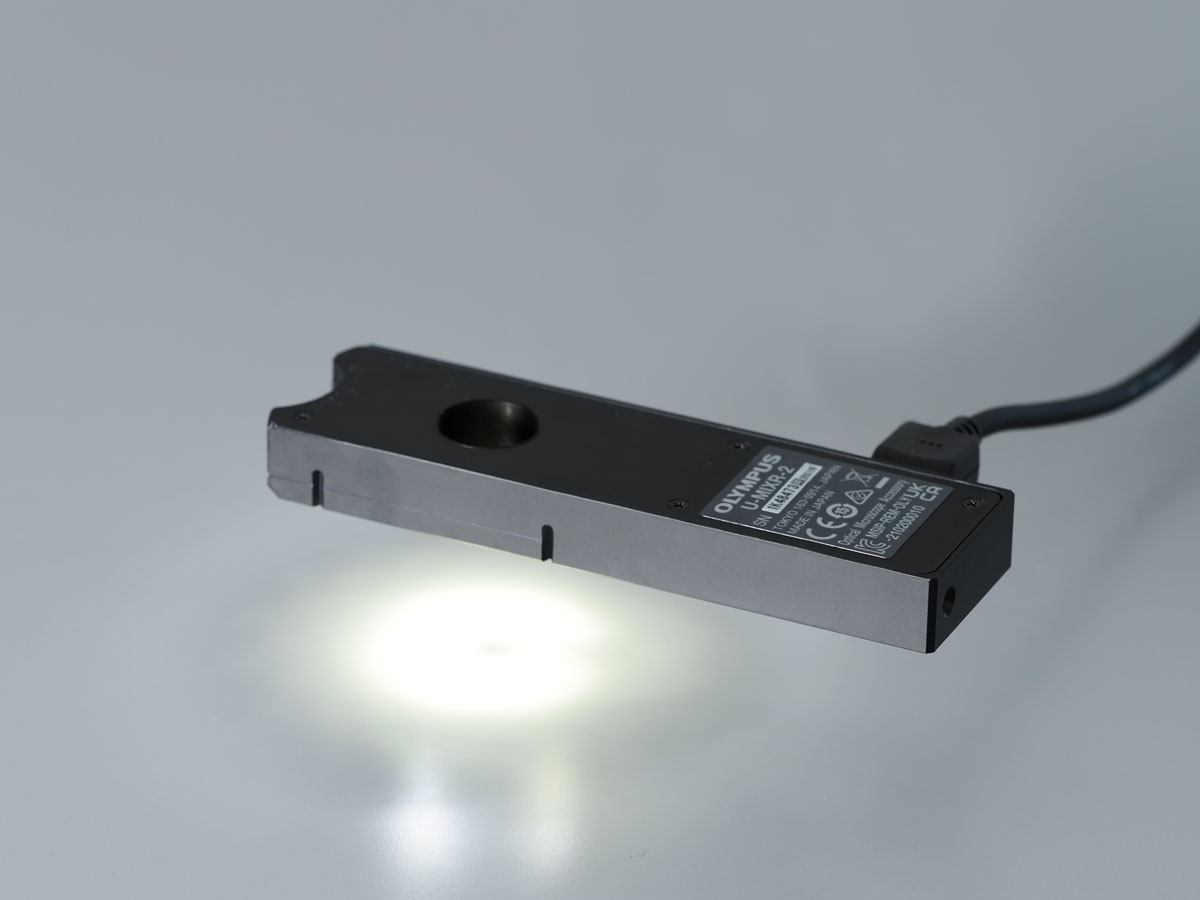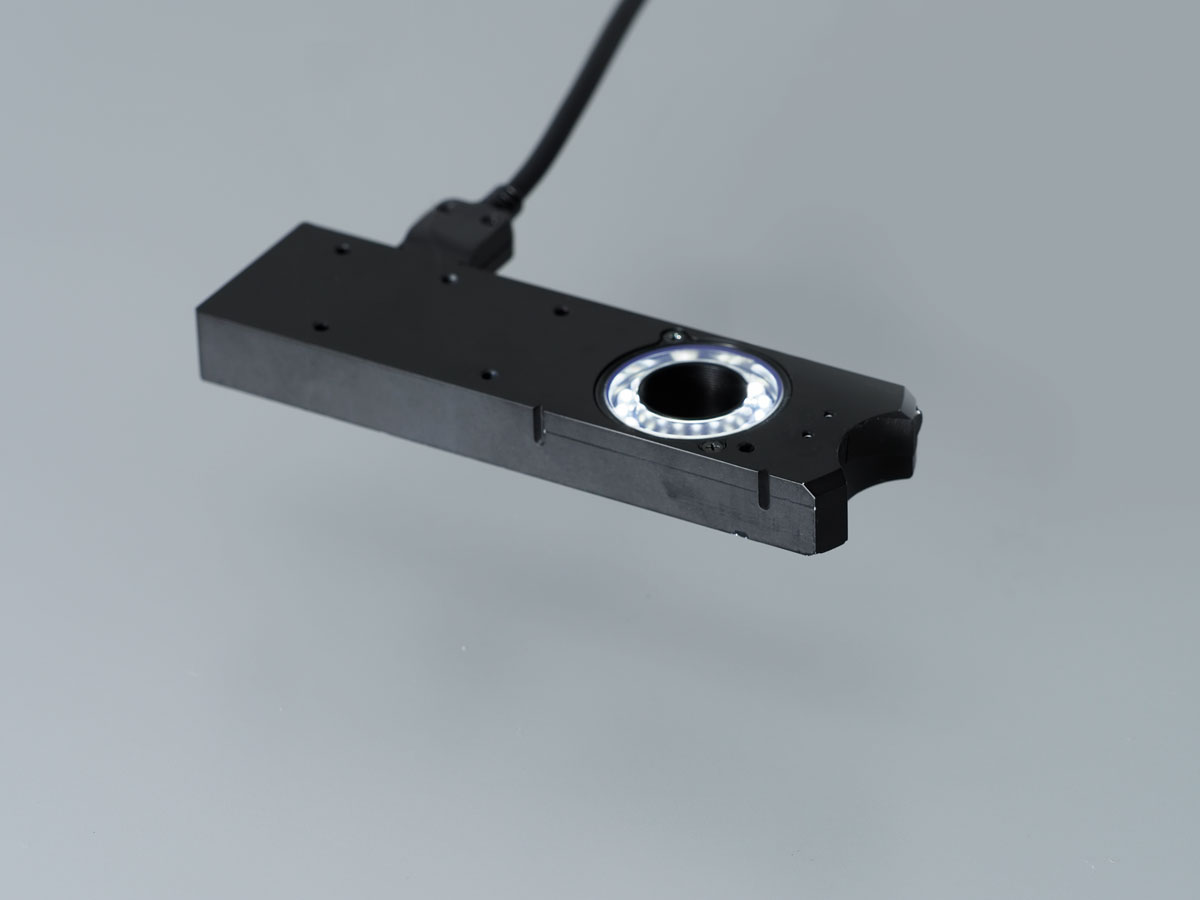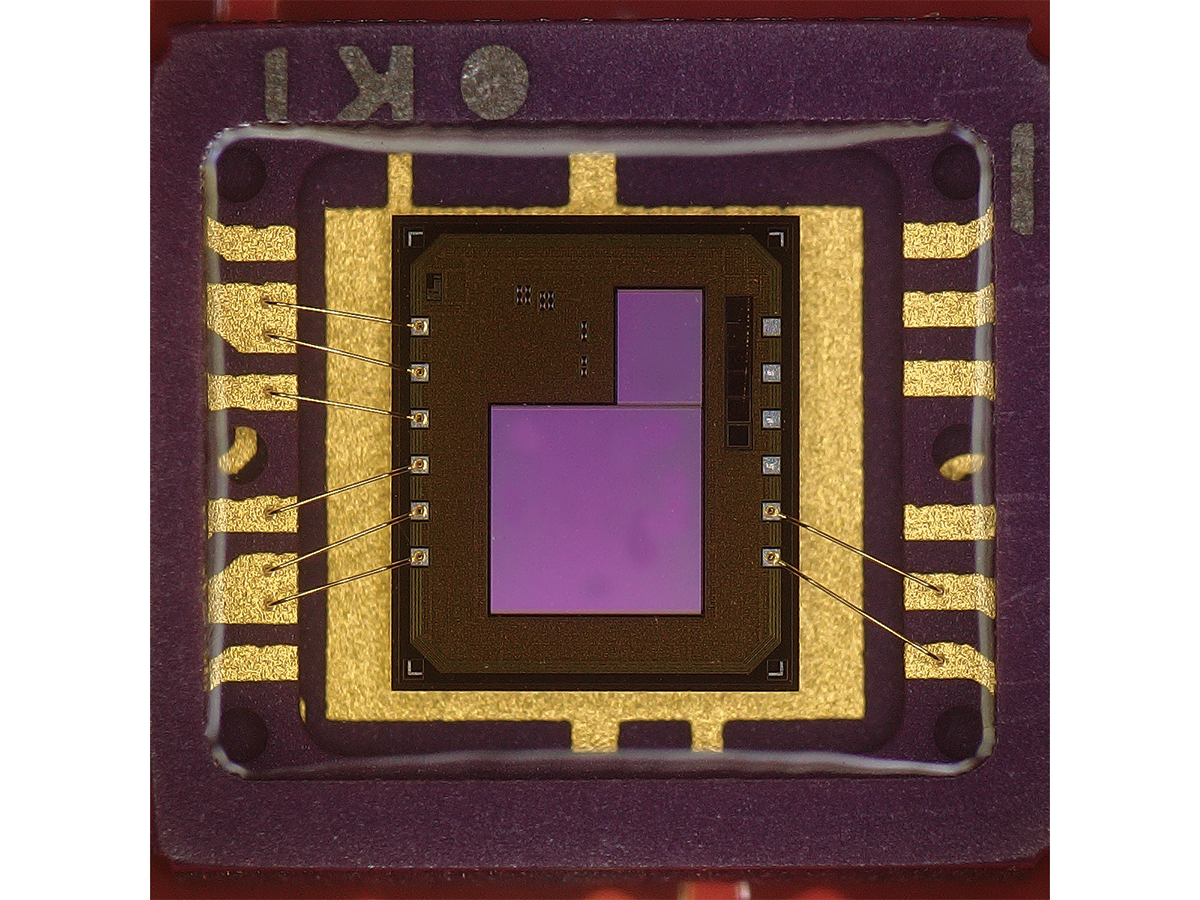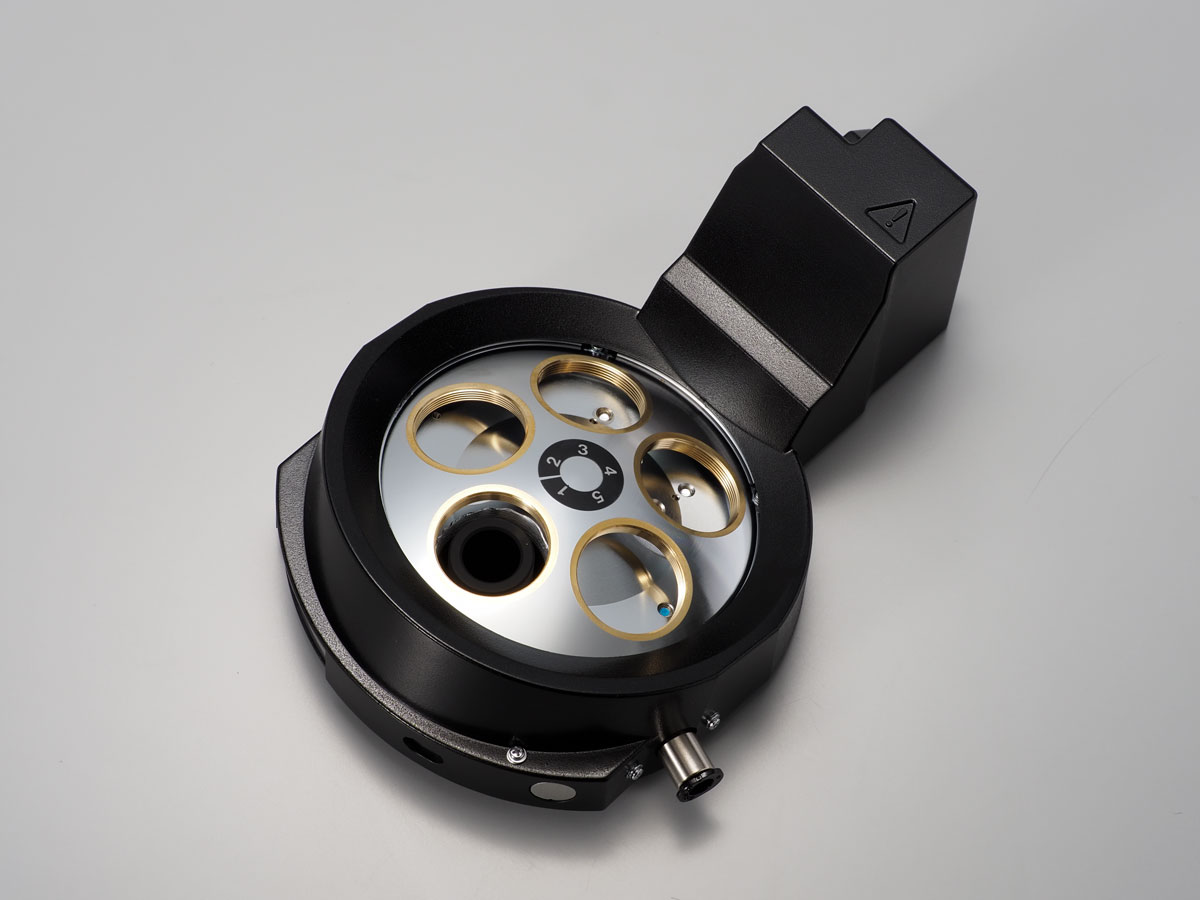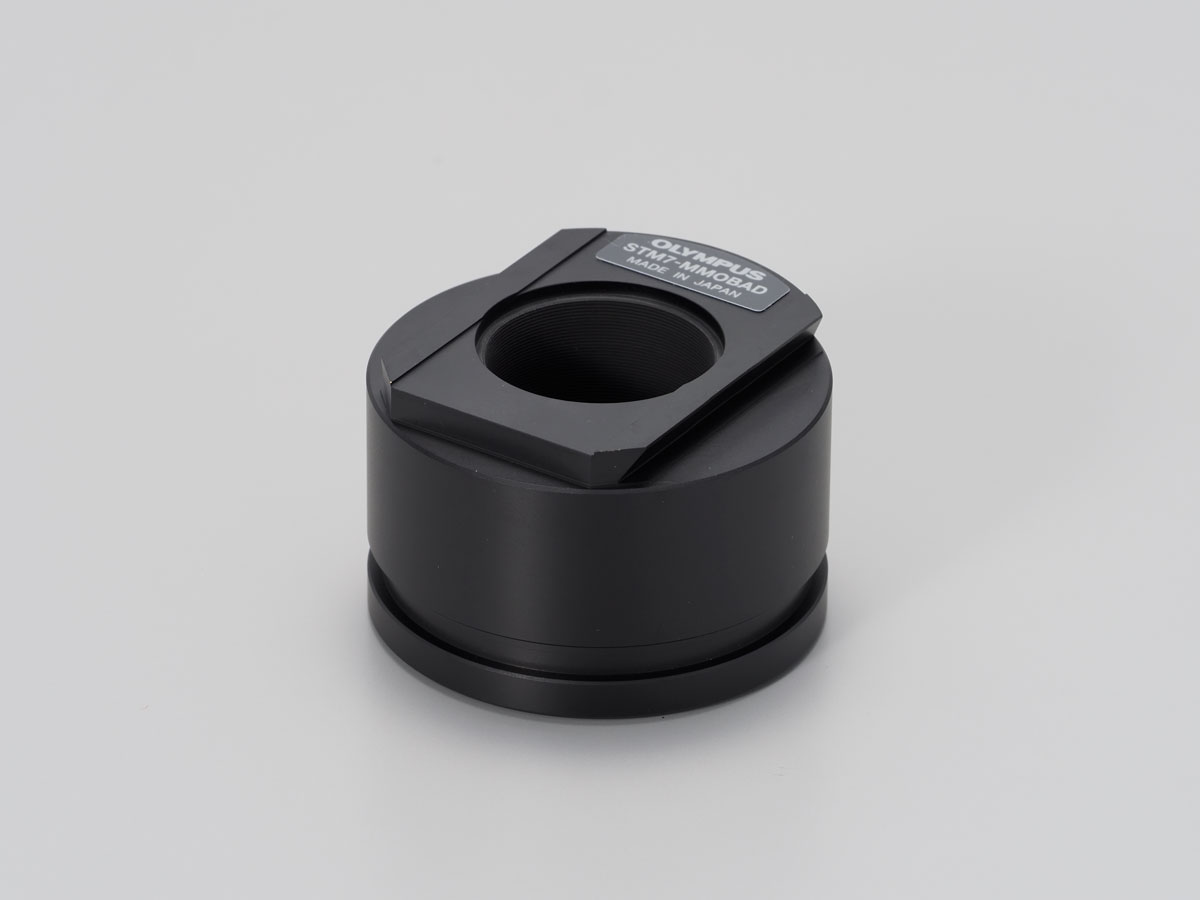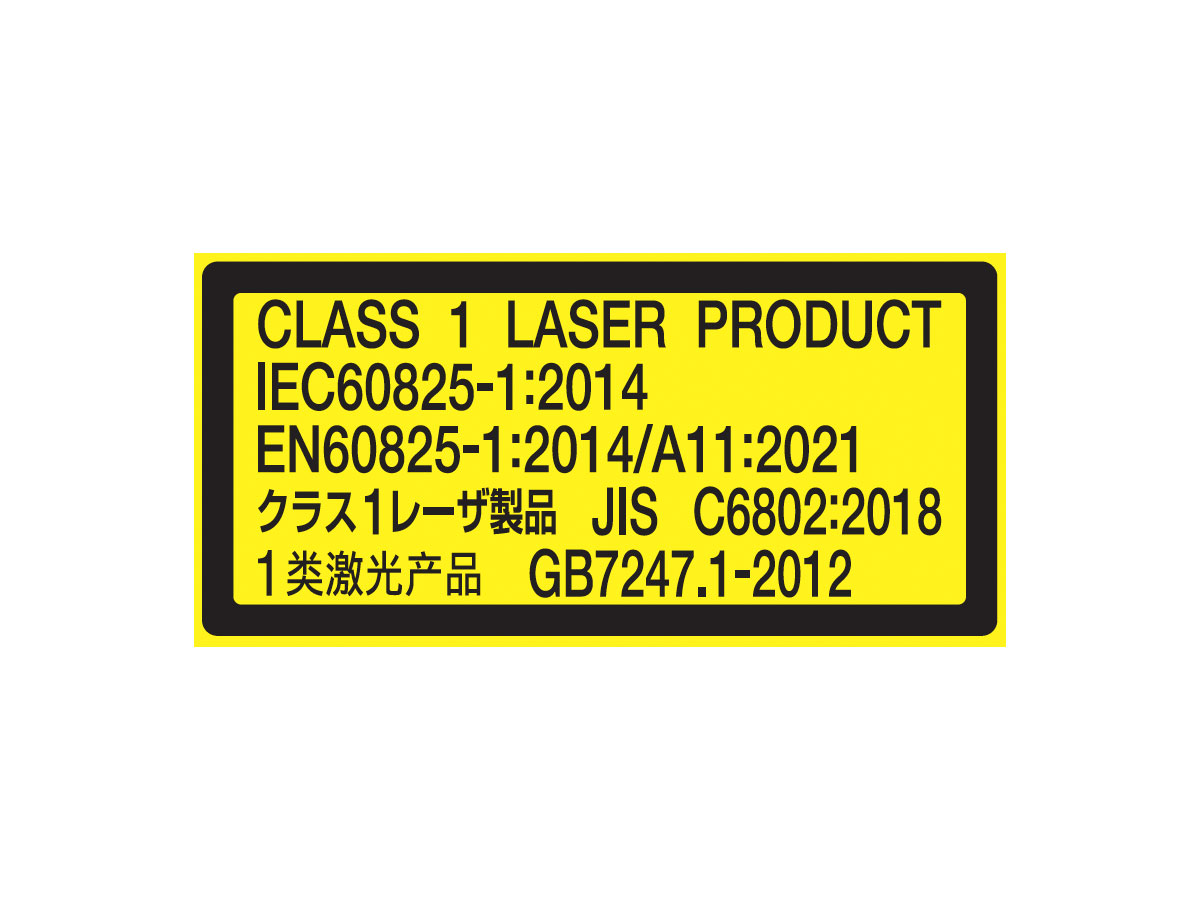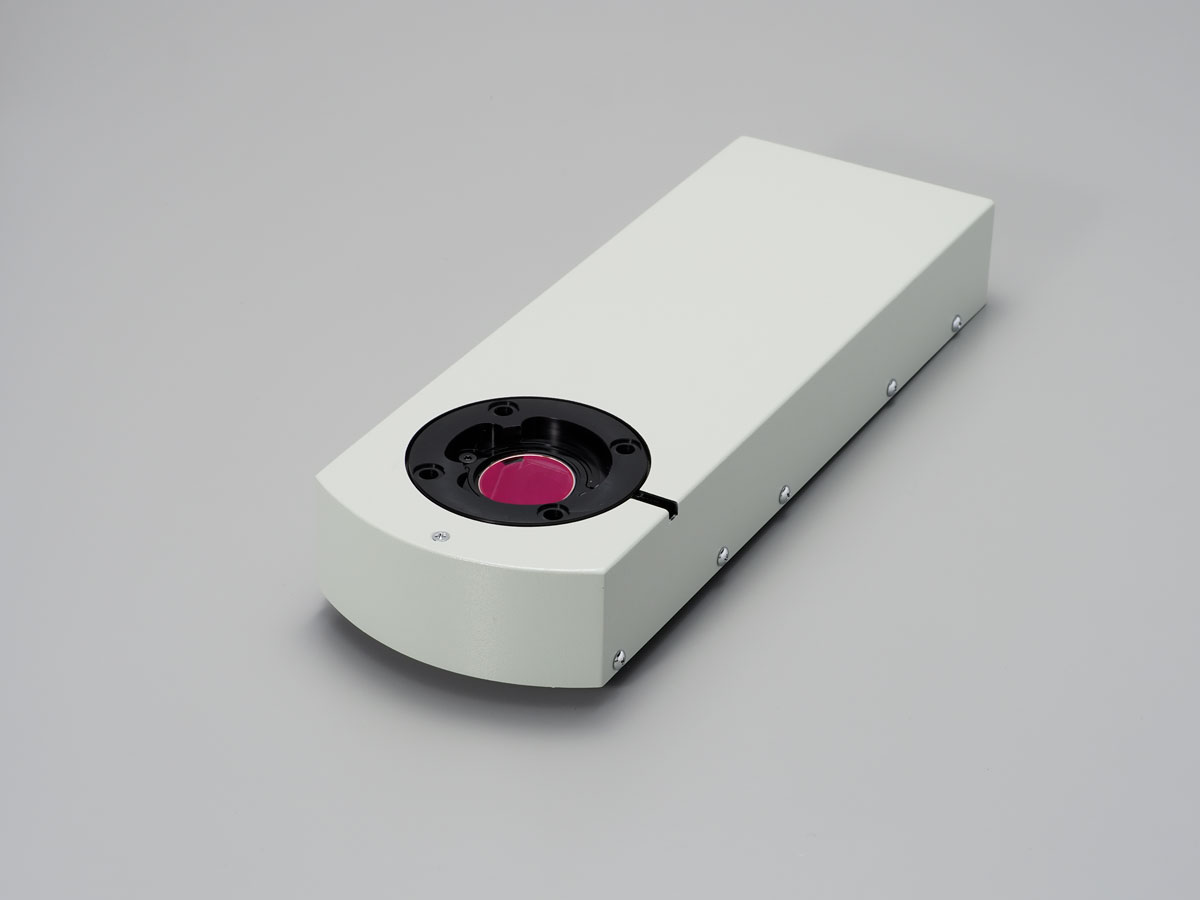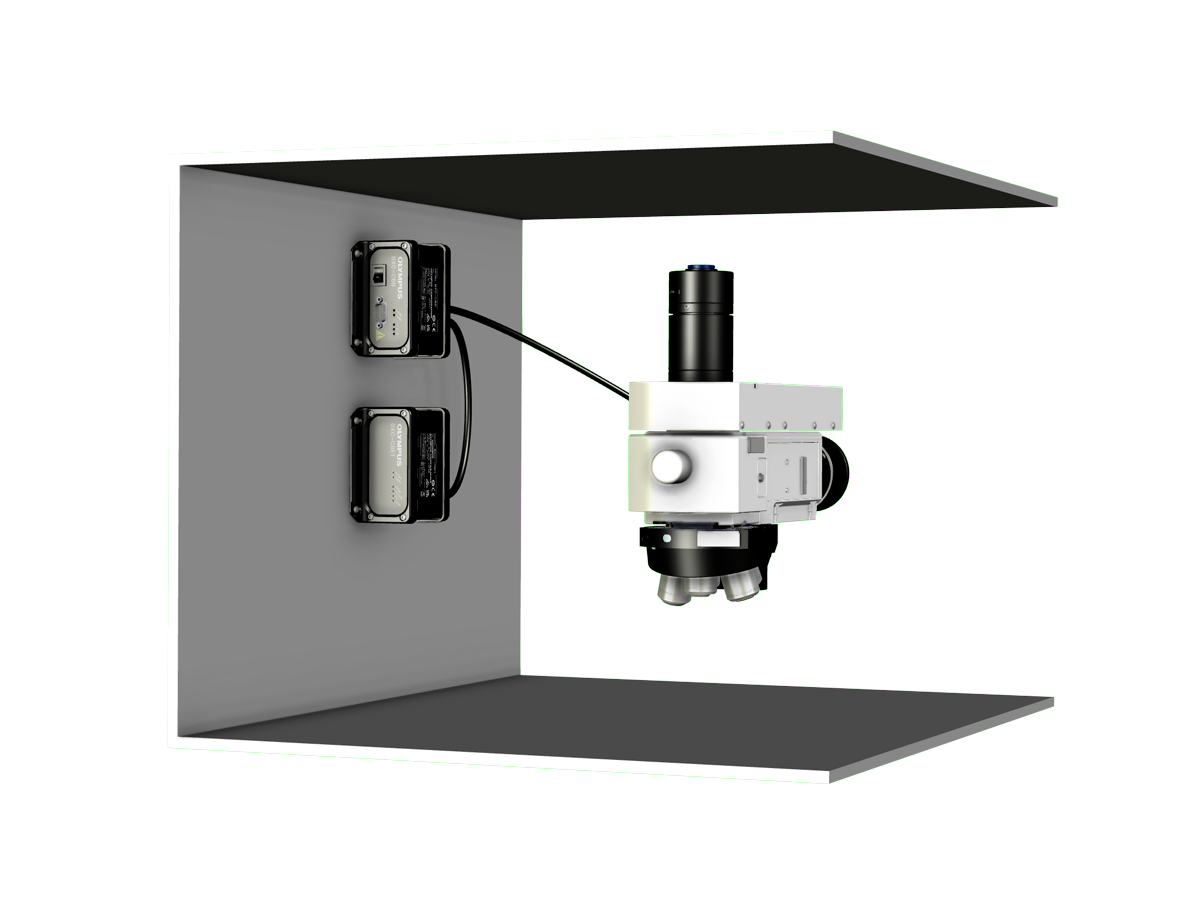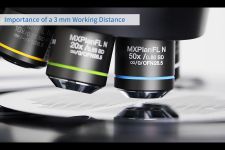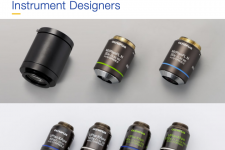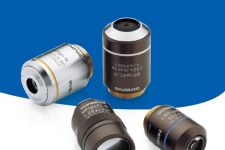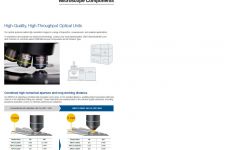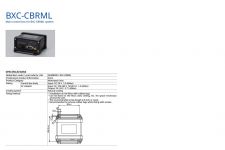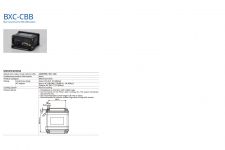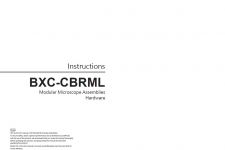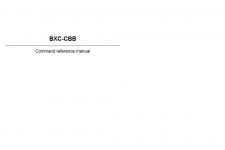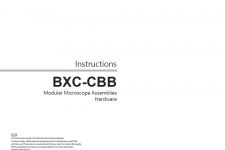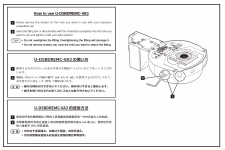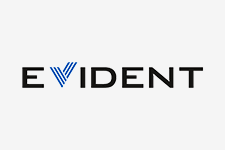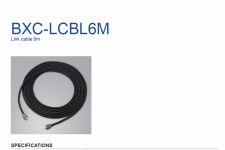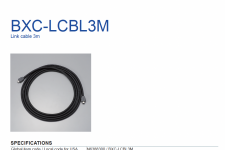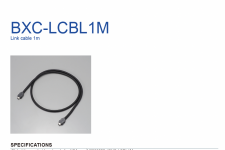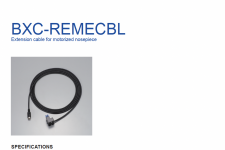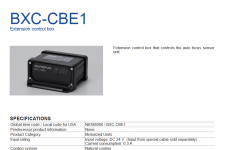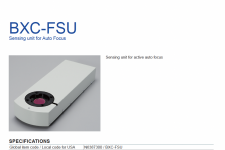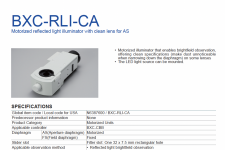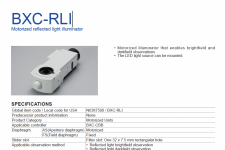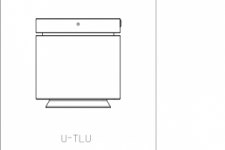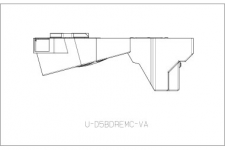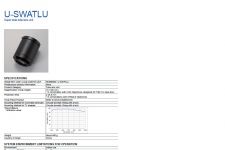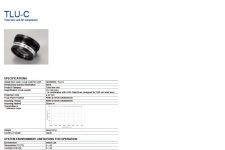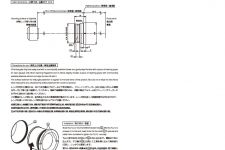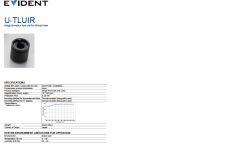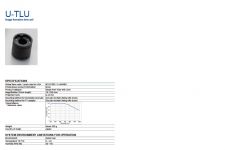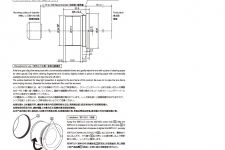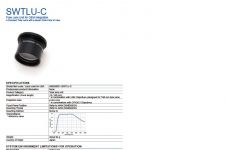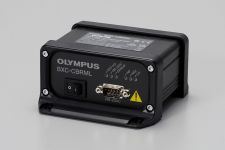Przegląd
High-Quality Compact Microscope AssembliesThe BXC series offers high-quality microscope components that suppress variations and provide stable imaging quality. These compact microscope assemblies can be quickly and easily integrated into your system with a variety of options. Please download the information necessary for device integration from our BXC series resource center. |
High-Performance Objective Lenses
Improved image flatness The image flatness of the MPLFLN 2.5X, 5X, and 5X brightfield/ darkfield objectives has been improved, making it faster to obtain stitched images at low magnifications. For higher throughput in darkfield observation, we introduced a brightfield/darkfield 2.5X objective—the MPLFLN2.5XBD.
Wavefront aberration control High-end manufacturing processes—such as wavefront aberration-controlled selection of lens assemblies—are used for MXPLFLN series objectives. This process keeps variation in device performance to a minimum.
|
What Configuration Will You Build?Part of our BX™ microscope series, the BXC series has a wide range of options for each part, including the objective lens, revolving nosepieces, and Illuminators. The series is designed to let you to choose freely according to your use case. The versatility and modularity of these components make them a good choice for inspection or imaging applications, such as instruments designed for wafer alignment, bump measurement, and image stitching. BXC Series Configuration Examples
| ||||||||
Advanced Options for System Design and AutomationVersatile directional darkfield Darkfield is used to observe scattered or diffracted light from a sample—such as scratches or flaws—on a mirror surface or semiconductor wafer. The MIX slider realizes darkfield without large, dedicated optics and enhances traditional darkfield with 16 individually controllable LEDs, enabling you to control the direction of light shining on the sample. In addition, this directional darkfield technique, achieved by using the MIX slider, can be combined with brightfield, simple polarized light, or fluorescence observation.
|
Dane techniczne
BXC Series Specifications
| BXC-CBRML system | BXC-CBB system | |||
|---|---|---|---|---|
| Entry Save space with only one BF objective 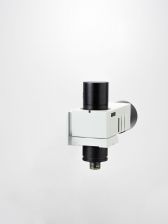 | Versatile Basic, compact assemblies  | Advanced Fully motorized assemblies for clean rooms  | ||
| Example configurations | BXFM-F, BXFM-ILHS, U-SWATLU, U-KMAS, BX3M-LEDR, CMP-LLHECBL, BXC-CBRML, STM7-MMOBAD BD-M-AD, SLMPLN20X | BXFM-F, BXFM-ILHS, U-SWATLU, U-KMAS, BX3M-LEDR, CMP-LLHECBL, U-D5BDREMC, BXC-REMECBL, U-MIXR-2, U-MIXRECBL, BXC-CBRML, MPLFLN5XBD2, LMPLFLN20XBD, LMPLFLN50XBD | BXC-FSU, BXC-RLI, U-SWATLU, BX3M-LEDR, U-D5BDREMC-VA, BXC-CBB, BXC-CBE1, BXC-LCBL1M, BXC-LCBL3M, MPLFLN2.5XBD, MPLFLN5XBD2, MPLFLN10XBD-2, MXPLFLN20XBD, MXPLFLN50XBD | |
| Objective lens | 20X (NA: 0.25, WD: 25 mm) |
5X NA: 0.15, WD: 12 mm
20X NA: 0.4, WD: 12 mm 50X NA: 0.5, WD: 10.6 mm |
2.5X NA: 0.08, WD: 8.7 mm
5X NA: 0.15, WD: 12 mm 10X NA: 0.3, WD: 6.5 mm 20X NA: 0.55, WD: 3 mm 50X NA: 0.8, WD: 3 mm | |
| Minimum resolution @λ=550 nm | 1.34 μm (20X objective) | 0.67 μm (50X objective) | 0.42 μm (50X objective) | |
| Maximum depth of field @λ=550 nm | ± 4.4 μm (20X objective) | ±12.2 μm (5X objective) | ± 43 μm (2.5X objective) | |
| Weight—without BXFM-F, stand, controller | 3.4 kg (7.5 lb) | 4 kg (8.8 lb) | 8.3 kg (18.3 lb) | |
| Observation modes | BF | BF, DF, MIX | BF, DF | |
| Z-stroke | 30 mm (manual) | 30 mm (manual) | Hardware provided by integrator | |
| Autofocus support | — | — | Available | |
| Filter slider slots | 3 | 3 | 1 | |
| Nosepiece | Motorized | — | Available | Available |
| Vacuum | — | — | Available | |
| Max number of objectives | 1 | 5 | 5 | |
| Optical field number (mm) | 26.5 | 26.5 | 26.5 | |
| Aperture stop | — | — | Available | |
| Dimensions—without BXFM-F, stand, controller (W × D × H) |
108 mm × 249 mm × 215 mm
(4.3 in. × 9.8 in. × 8.5 in.) |
108 mm × 249 mm × 230 mm
(4.3 in. × 9.8 in. × 9 in.) |
132 mm × 404 mm × 277 mm
(5.2 in. × 15.9 in. × 10.9 in.) | |
*These are example configurations. Please work with your local representative to choose the components that meet your requirements. |
